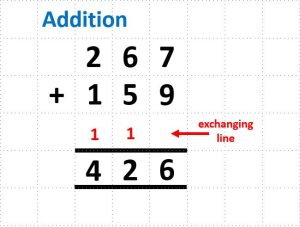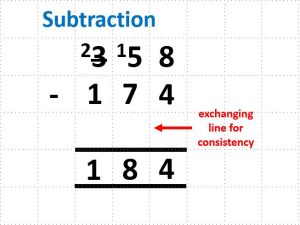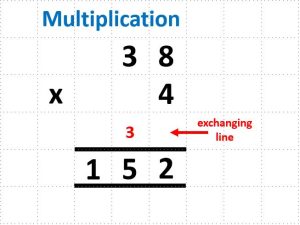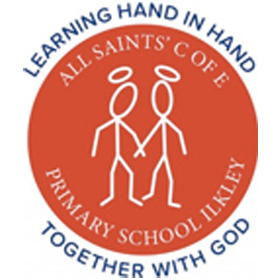Squirrel Class
Class teacher’s welcome
Welcome to year 2 and 3 Squirrels Class! This year promises to be an exciting journey of learning, discovery and growth. In our classroom, we celebrate curiosity, creativity and kindness. Encouraging every child to develop their confidence and achieve their best. We will explore a wide range of subjects through engaging lessons, hands-on activities and collaborative projects, while also focusing on building strong friendships and supportive learning community. Together, we will work hard, have fun and make this a fantastic year to remember!
Curriculum news
Spring 1:
The “At a Glance” overview, which was previously updated on the website each half term, is now provided as an attached newsletter document for ease of access.
Spellings and Phonics
At All Saints’ Primary School, we follow Little Wandle Phonics which then transfers into the Read, Write Inc. spelling scheme in Key Stage 2. You can find an overview of your child’s spellings below.
Year 2s will be focusing on the following during their sessions this half term:
Phase 5 review:
| Week 1 | /ai/ a-e ai ay a eigh ea ey aigh /ee/ y ea ee e ie ey e-e /igh/ igh i-e i y ie /oa/ ow o o-e oa oe ou | people eye
whole |
| Week 2 | oo/ /yoo/ oo u u-e ew ue ou ui /air/ air are ear ere /ur/ er ur ir or ear /ow/ ou ow | through improve move prove shoe two who beautiful their parents |
| Week 3 | or/ or a aw au ore oor al oar our augh aur /zh/ si su /ch/ ch tch ture* /sh/ sh ti ch ssi ci si | thought sure |
| Week 4 | j/ j g ge dge /s/ s ss c ce se st sc /u/ ou /e/ ea /i/ y /o/ a /u/ o o-e /oo/ u oul schwa: er a or ar our re | once again any many friend busy pretty because laugh** |
| Week 5 | ie /ee/ /igh/ y /ee/ /igh/ /i/ ea /ee/ /e/ /ai/ a /a/ /ai/ /or/ | friend |
Autumn 2:
| Week 1 | What do I need to know to think about spelling? How do I use the Complete the code chart to help me to spell? | Homophones and near-homophones |
| Week 2 | Why do I double letters at the end of words? Why do I double letters in some longer words ending in -er? | Adding -ing, -ed, -er, -est and -y to words of one syllable ending in a single consonant letter after a single vowel letter |
| Week 3 | Why do some words end in ‘k’ or ‘ck’? Why do some words end in ‘ch’ or ‘tch’? | |
| Week 4 | When do I add the suffix -es/-s to words? Why do I double the final letter in some words when I add the suffix -ing? | Adding -ing, -ed, -er, -est and -y to words of one syllable ending in a single consonant letter after a single vowel letter |
| Week 5 | Why do I swap the ‘y’ for an ‘i’ when I add the suffix -ed? Why do I drop the ‘e’ when I add the suffix -ing? | Adding -ed, -ing, -er and -est to a root word ending in -y with a consonant before it Adding the endings -ing, -ed, -er, -est and -y to words ending in -e with a consonant before it |
Spring:
| Week | Focus | Example Words |
| Week 1 | The or sound spelt a before l and ll. | almost, already, chalk, small, stalk, talk, altogether, Red Words: above, after, again |
| Week 2 | Soft c . | Circus, city, concert, excellent, exercise, fancy, notice, pencil, Red Words: any, anyone, are |
| Week 3 | Adding the suffix –y (1) | Dotty, muddy, spotty, runny, sunny, yummy, foggy, funny Red Words: ask, bath, beautiful |
| Week 4 | Special focus 1: Red words. Common exception
Special Focus 2: Homophones. |
1: where, could, there, want, was, would, what
2: See/sea, son/sun, blew/blue, knight/night, saw/sore |
| Week 5 | Adding the suffix –y (2) | Breezy, crazy, curvy, greasy, simply, spiky, wheezy, Red Words: behind, both, bought |
| Week 6 | Adding the suffix –ly | Bravely, foolishly, happily, loudly, nearly, softly, warmly Red Words: break, brother, buy |
| Week 7 | Half term | |
| Week 1 | The n sound spelt kn and gn. | Gnash, gnaw, gnome, knead, knee, knock, knit, Red Words: caught, child, children |
| Week 2 | The igh sound spelt y. | Butterfly, horrify, July, multiply, my, nearby, reply, Red Words: Christmas, class, climb |
| Week 3 | Adding the suffix –ing (1) | Beginning, clapping, dropping, gripping, nodding, shopping, tripping Red Words: clothes, cold, come |
| Week 4 | Special focus 3: Red words. Common exception
Special Focus 4: Homophones. |
3: money, people, busy, half
4: There/their, no/know, right/write, to/too, week/weak |
| Week 5 | Adding the suffix –ing (2) | Baking, cracking, phoning, racing, shading, tickling, writing, Red Words: does, door, down |
| Week 6 | Half term |
Year 3s:
| Week | Focus | Example Words |
| 8 Sep | The or sound spelt a before l and ll. | almost, already, chalk, small, stalk, talk, altogether, Red Words: above, after, again |
| 15 Sep | Soft c . | Circus, city, concert, excellent, exercise, fancy, notice, pencil, Red Words: any, anyone, are |
| 22 Sep | Adding the suffix –y (1) | Dotty, muddy, spotty, runny, sunny, yummy, foggy, funny Red Words: ask, bath, beautiful |
| 29 Sep | Special focus 1: Red words. Common exception
Special Focus 2: Homophones. |
1: where, could, there, want, was, would, what
2: See/sea, son/sun, blew/blue, knight/night, saw/sore |
| 6 Oct | Adding the suffix –y (2) | Breezy, crazy, curvy, greasy, simply, spiky, wheezy, Red Words: behind, both, bought |
| 13 Oct | Adding the suffix –ly | Bravely, foolishly, happily, loudly, nearly, softly, warmly Red Words: break, brother, buy |
| 20 Oct | The n sound spelt kn and gn. | Gnash, gnaw, gnome, knead, knee, knock, knit, Red Words: caught, child, children |
| 28 Oct | – HALF TERM | – |
| 3 Nov | The igh sound spelt y. | Butterfly, horrify, July, multiply, my, nearby, reply, Red Words: Christmas, class, climb |
| 10 Nov | Adding the suffix –ing (1) | Beginning, clapping, dropping, gripping, nodding, shopping, tripping Red Words: clothes, cold, come |
| 17Nov | Special focus 3: Red words. Common exception
Special Focus 4: Homophones. |
3: money, people, busy, half
4: There/their, no/know, right/write, to/too, week/weak |
| 24 Nov | Adding the suffix –ing (2) | Baking, cracking, phoning, racing, shading, tickling, writing, Red Words: does, door, down |
| 1 Dec | The j sound. | Adjust, bridge, charge, energy, gentle, large, urgent, Red Words: even, every, everybody |
| 8 Dec | The o sound spelt a after w and qu. | Quality, quantity, squash, wallet, wander, wasp, watch, Red Words: eye, fast, father |
| 15 Dec | Special focus 5: Contractions and apostrophes. | 5: I’m, I’ll, |
Spring:
| Week | Focus | Example Words |
| 12th Jan | Adding the suffix –ed (1) | Dropped, hugged, chipped, clapped, stepped, flipped, spotted, Red Words: fast, Father, find |
| 19th Jan | Adding the suffix –ed (2) (swapping y for i). | Carried, fried, hurried, married, multiplied, tried, replied
Red Words: gold, grass, great |
| 26th Jan | Adding the suffix –ed (3) (dropping e to add –ed, and revision of doubling final consonant and swapping y for i). |
Battled, cycled, denied, liked, ruled, phoned, striped, Red Words: half, has, here |
| 2nd Feb | The u sound spelt o, and the or sound spelt ar after w. | brother, other, nothing, Monday, swarm, reward, warm Red Words: hold, hour, house |
| 9th Feb | Possessive apostrophes. | Practice Red words from this half term so far. |
| 16th Feb | The r sound spelt wr | wrong, wrestle, wrist, wrap, write |
| 23rd Feb | The r sound spelt wr | wreck, wrinkle, wriggle, wren |
| 2nd March | Adding the suffixes -er or -est (1) | faster, slowest, louder, largest, braver
|
| 9th March | Special Focus 1 (Red words) and Special Focus 2 (Homophones) | 1: many, some, should, come, any, would
2: there/their, nose/knows, for/four |
| 16th March | Adding the suffixes -er or -est (2) | happier, silliest, funnier, finest, wiser, nicest, slimier, trickiest |
| 23rd March | Adding the suffixes -er or -est (3) | bigger, slimmest, hotter, saddest, wetter, fittest, maddest |
| 30th March | Half-term | |
| 6th April | ||
| The ee sound spelt ey | key, donkey, chimney, turkey, trolley, money, honey, jockey | |
| Adding the suffix -ness (1) | Kindness, sadness, illness, weakness, darkness, foolishness | |
| Adding the suffix -ness (2) | dizziness, silliness, cheekiness, madness | |
| Words ending in -le | rattle, simple, middle, triangle, giggle, bubble, handle, battle, little, table | |
| Special Focus 3 (Words ending -il and words where s makes the zh sound ) and Special Focus 4 (Homophones) | 3: fossil, council, evil, peril, nostril; measure, treasure, usual, television
4: seen/scene, wait/weight, hole/whole, sighed/side, new/knew |
|
| Words ending in -el | camel, tunnel, towel, travel, jewel, label, angel, cancel, level | |
| Words ending in -al | magical, plural, vocal, tropical, animal, capital, medical, signal, festival | |
| Adding the suffix -ful | joyful, cheerful, thankful, wonderful, hopeful, painful, colourful, thoughtful | |
| Special focus 5 (ir sound spelt or after w) | 5: worm, world, work, worth, worst, password, workshop | |
Home Projects:
Geography
- Create a map of your local area (real or imaginary) showing homes, roads, green spaces and landmarks
- Compare two places (village vs city, UK vs another country) using pictures and labels
- Make a land use collage showing where people live, work, play and grow food
- Design a settlement and explain why you chose that location (near water, roads, land)
Science
- Build a simple forces investigation (e.g. which surface makes a toy car travel furthest)
- Test magnetic and non-magnetic materials and record results with drawings
- Make a push and pull poster showing forces used in everyday life
- Create a mini science diary of forces you notice at home or outdoors
DT
- Design and build a bridge or structure using recycled materials
- Create a moving model (slider, wheel or lever) linked to land use or transport
- Design a playground or park for a chosen place, explaining materials used
- Make a poster showing the design process: plan → build → evaluate
Be Creative! You can make a scrapbook, a giant poster, a PowerPoint slideshow or even a video diary. Add drawings, photos, maps, charts, and anything else to make your project exciting and colourful.
Please bring your home project during the week beginning 2nd February- we are hoping to make these part of our exploration showcase! . The suggested projects are just ideas. You are welcome to create anything you like based on what we’ve learned this term.
Dates for the diary
PE days: Tuesday (Mrs Siddons), Thursday (Mrs Ed-dakhissi)
Forest School: Just a little reminder that Squirrel Wednesday the 1st of October 2025. Their last session will be Wednesday 15th October 2025. Please check the letter for details of what your child will need to wear.
Squirrel Class Collective Worship and class visit: Wednesday 26th November 2025
Squirrel class Church Visit: Thursday 2nd October
Parents evening consultation: Tuesday 14th October and Thursday 16th October 2025
Carol Service year 3 at All Saints’Church: Tuesday 16th December 2025
Carol Service year 2 at All Saints’Church: Wednesday 17th December 2025
Links to support learning
Reading
Please encourage your child to read daily for a minimum of 10 minutes. At least 3 reading sessions per week should be recorded in the school Reading Record. Children should all have a school reading book (that can be changed regularly) but should be encouraged to read other material as well.
Maths
Year 2 Numbots (login on inside front cover of Reading Record) – Children work through the different levels to help secure their calculation skills and number facts.
Times Table Rock Stars (login on inside front cover of Reading Record) – Y3 introduces 3, 4 and 8 multiplication tables, as well as building on 2, 5 and 10 (from Y2)
Written methods for addition, subtraction and multiplication are taught as in the pictures below.



Just for fun!
